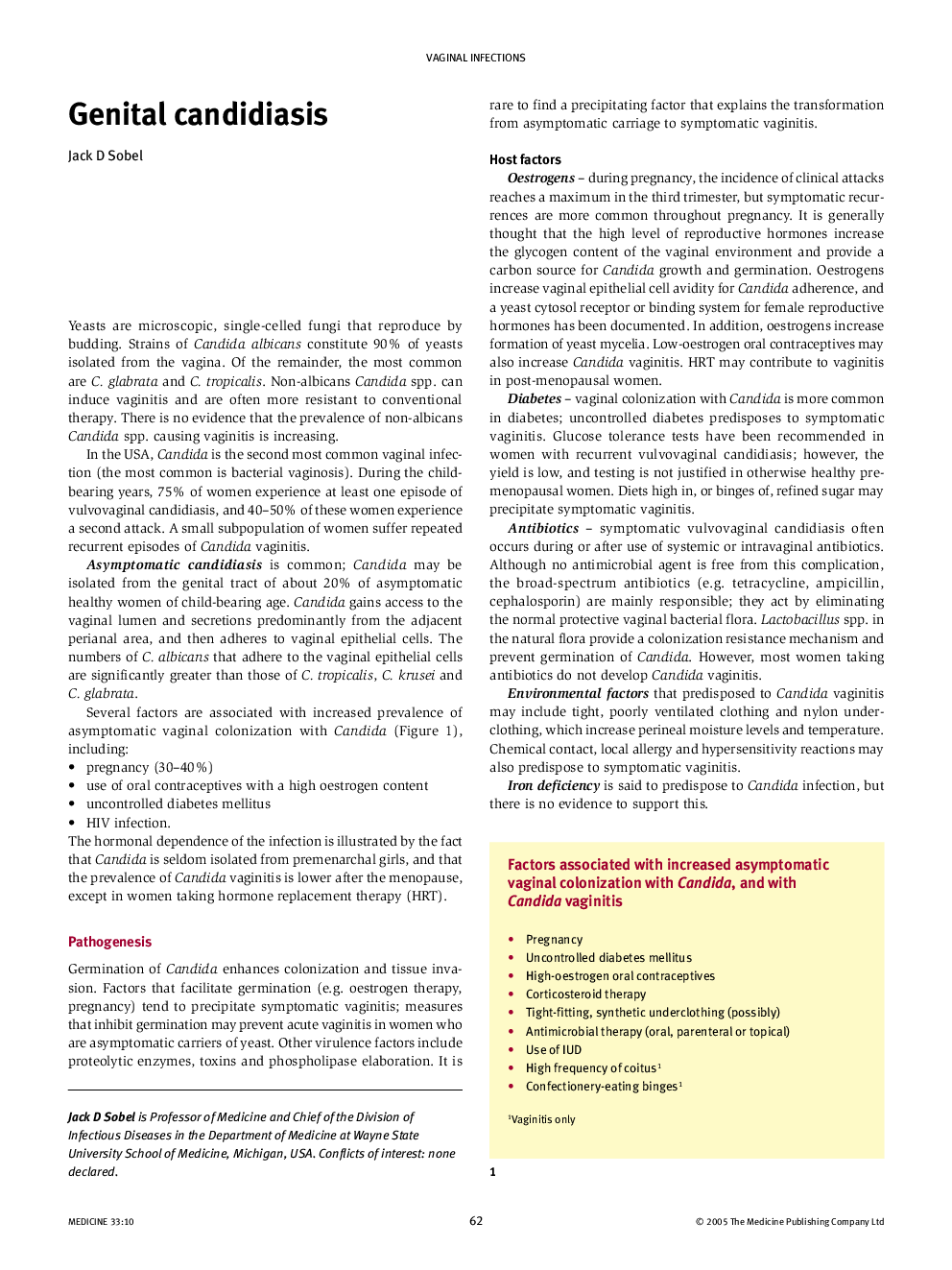| Article ID | Journal | Published Year | Pages | File Type |
|---|---|---|---|---|
| 9300544 | Medicine | 2005 | 4 Pages |
Abstract
Genital candidiasis is a worldwide problem affecting millions of women. It is not a traditional STIs but has a complex aetiology in which genetic, biological and behavioural factors interact to cause symptomatic or asymptomatic infection. Clinical signs and symptoms are nonspecific and diagnosis is often difficult, with a tendency to both under-diagnosis and over-diagnosis. Simple, reliable and rapid diagnostic tests remain elusive. Management has been simplified by classifying infection into uncomplicated (90%) and complicated (10%) disease. Uncomplicated candidiasis is effectively treated with short-course antifungal therapy regardless of route of administration. In contrast, complicated disease requires more prolonged therapy, including long-term weekly fluconazole for recurrent disease. Candida albicans resistant to azoles remains extremely rare, but vaginitis caused by C. glabrata responds less well to azoles and is best treated with topical boric acid or 17% flucytosine. The single most important challenge to successful treatment of genital candidiasis remains availability of a rapid, inexpensive, reliable point-of-care test to increase diagnostic accuracy.
Keywords
Related Topics
Health Sciences
Medicine and Dentistry
Medicine and Dentistry (General)
Authors
Jack D Sobel,
